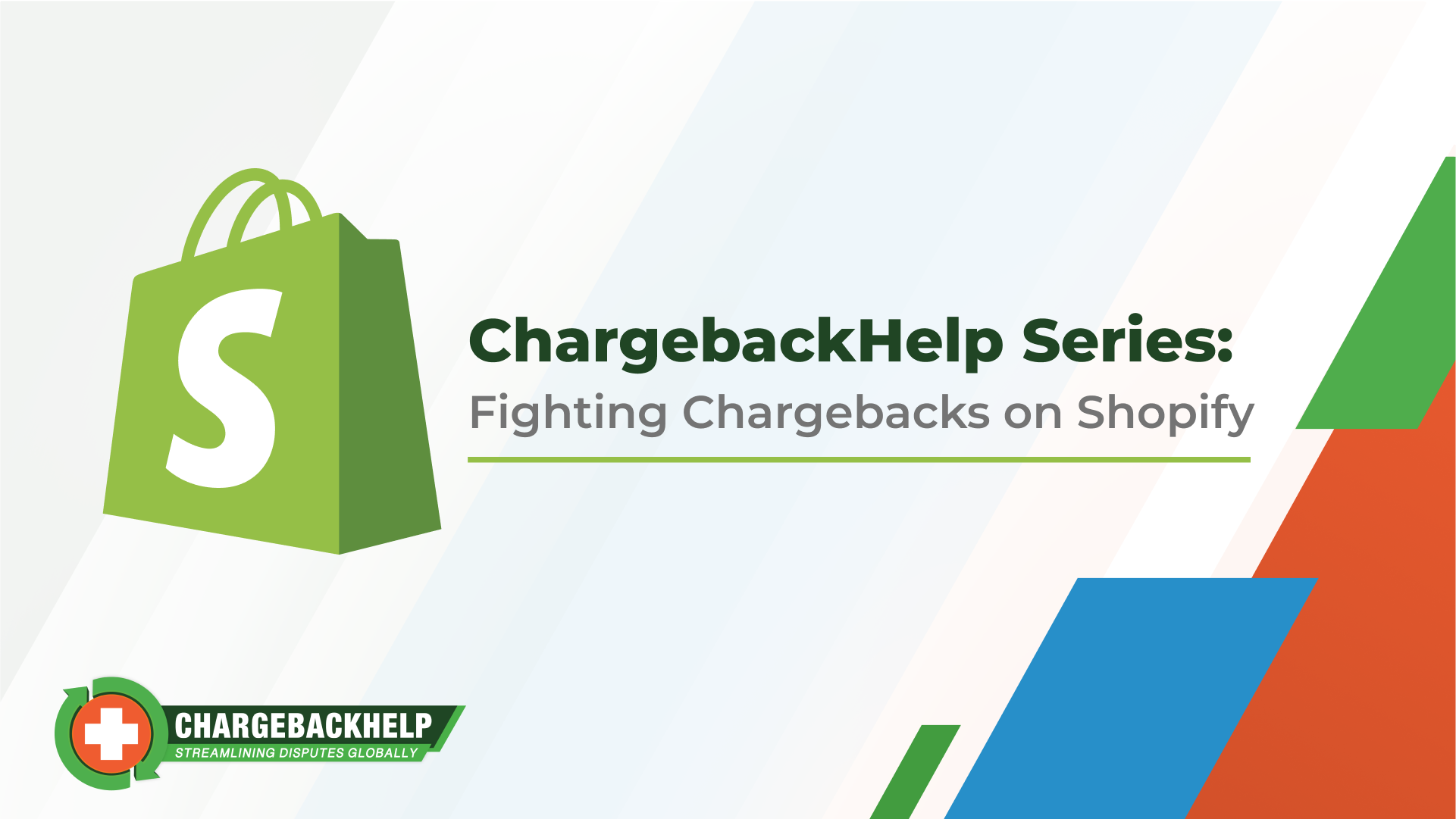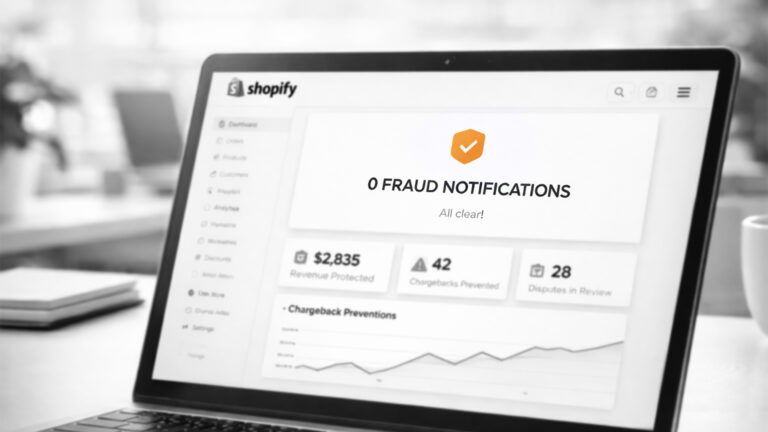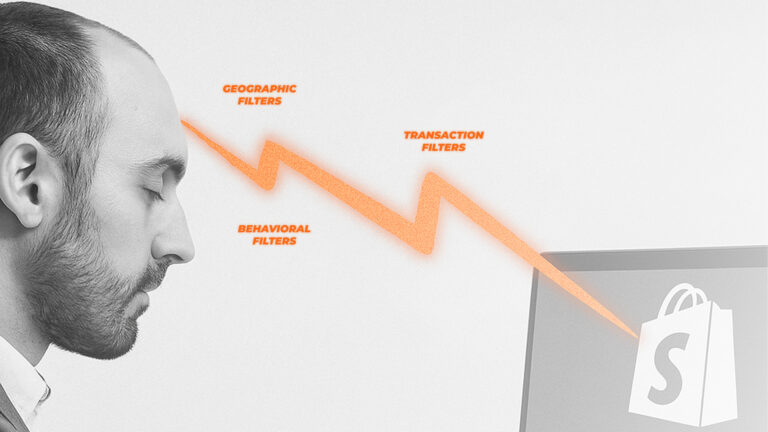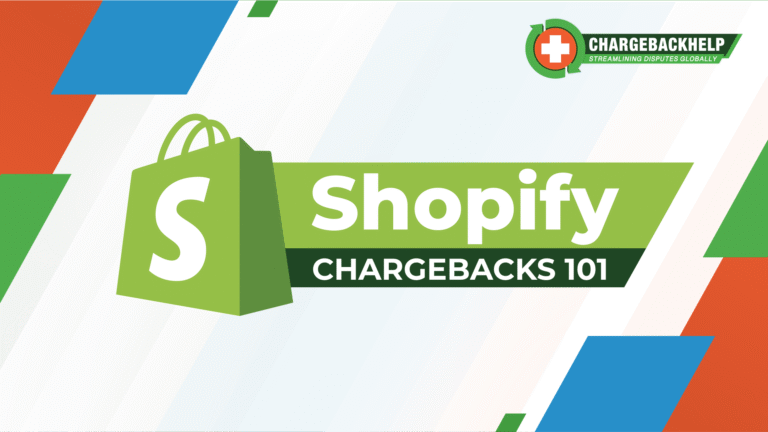Understanding Chargebacks on Shopify: 2025 Merchant Guide

All About Shopify Chargebacks
This guide kicks off a multi-part series for Shopify sellers looking to understand and reduce chargebacks.
In this guide we will cover what chargebacks are, why they happen, and how to reduce them at every stage of your store’s growth. From first-time sellers to high-volume operations, it offers practical insights to help protect your business and improve outcomes.
If you’re a Shopify seller, even a new one, there’s a good chance you’ve already heard the word “chargeback” tossed around in forums, on Reddit threads, or by other frustrated sellers. And if you’ve ever had one hit your account, you know the feeling. Confusion. Frustration. Maybe even a little panic.
This article kicks off a multi-part guide designed to help Shopify merchants of all experience levels navigate the world of chargebacks with more confidence and clarity. No scare tactics. No sales fluff. Just a straightforward look at what you’re up against and how to protect your store.
We’ll break this series into three major stages of a merchant’s journey:
- New sellers still finding their footing
- Growing stores with rising order volumes
- Established businesses operating at scale
Each part of the series dives deep into specific pain points that show up at each phase. Because a chargeback isn’t the same beast for a first-time shop as it is for a seven-figure store.
Here’s what’s ahead.
Part 1: For New Shopify Merchants
Starting a Shopify store can feel like sprinting into the unknown. One minute you’re celebrating your first sale. The next, you’re wondering why a customer went behind your back to their bank.
That’s the jarring reality of chargebacks. They often blindside new merchants who are still learning the ropes.
This first segment of the series focuses on awareness and protection, starting with the basics.
What are Chargebacks?
This section covers the basics of chargebacks: what they are, how they work, and why they happen. It’s meant for merchants who are new to the concept and need a clear, jargon-free explanation.
Understanding Chargeback Vulnerability in Your First Year
This section explains why chargebacks tend to impact new sellers more often and more severely. It focuses on how early missteps, limited experience, and trust-building challenges can make first-time merchants especially vulnerable.
Why First-Time Merchants Get Hit More Often
Spoiler: it’s not just about fraud. Many first chargebacks come from simple mistakes. Unclear shipping times, vague product descriptions, or even clunky checkout flows. This part walks through those early pitfalls.
Simple Steps to Reduce Chargebacks on Shopify
Think of this as your first “chargeback hygiene” checklist. We’ll talk about policies, email confirmations, product imagery, and other no-cost moves that set clearer expectations and reduce misunderstandings.
How to Spot Risky Orders Before They Ship
Some orders just feel off. We’ll cover warning signs to look for. Things like mismatched billing data, suspicious email domains, or unusual quantity spikes. And how to slow down just enough to avoid a mess.
How to Respond to a Chargeback on Shopify
The first time you get that notice, it’s jarring. This section explains the basics of Shopify’s built-in resolution system, how to write a response, and which documents actually help your case.
Using Shopify’s Built-In Tools to Fight Back
Shopify gives you a few levers. We’ll show you how to use the built-in dispute dashboard, automate some of the response steps, and avoid common submission mistakes.
Part 2: For Growing Shopify Merchants
As sales climb, so do risks. And unfortunately, so do chargebacks.
In this phase of the series, we explore what changes once your store moves out of the newbie stage. You’re seeing more traffic, more transactions, maybe even hiring a small team. But you’re also starting to feel the sting of unexpected refunds, tighter margins, and chargebacks that start to pile up.
Why Chargebacks Increase as Your Store Grows
It’s not in your head. There are specific reasons why more volume leads to more disputes. We’ll walk through what changes behind the scenes as order velocity climbs.
The Hidden Cost of Chargebacks for Mid-Sized Stores
Beyond lost revenue, we’ll talk about how chargebacks chip away at team morale, skew your reporting, and jeopardize relationships with payment processors if left unchecked.
Tools That Help Prevent Fraud on Shopify
This part gets a little more tactical. We’ll explore tools and plug-ins that detect red flags early and how to set them up without slowing down legit sales.
Setting Up Smart Rules for Risky Orders
Ever wish Shopify would block certain orders before they hit your inbox? This section dives into risk rules, tag-based filters, and how to automate smarter decision-making.
Automating Your Chargeback Responses
At some point, responding manually isn’t sustainable. This section covers when to start using templates, how to organize your evidence library, and ways to streamline responses without sounding robotic.
When Shopify’s System Isn’t Enough
Hard truth. Shopify’s built-in protections plateau. We’ll talk about edge cases and growing pains, and what to do when the internal tools can’t keep up.
When to Start Using External Help
There’s no exact moment, but we’ll lay out common signals. Backlogged disputes. Burnout from handling responses. Or simply not having the time anymore. If you’ve hit that point, you’re not alone.
Choosing the Right Tools to Prevent and Fight Chargebacks
This section explores the most common chargeback prevention methods available to Shopify merchants. We’ll break down how credit card networks support merchants through early alerts, dispute resolution programs, and other tools designed to reduce unnecessary chargebacks.
Part 3: For Established Shopify Merchants
You’ve made it through the early chaos. You’ve scaled. But now you’re facing a new problem: operational complexity.
This final section is built for high-volume stores. Think hundreds of orders per day. Think Shopify Plus. And at this level, chargebacks don’t just “happen.” They hurt.
How Chargebacks Hurt High-Volume Stores
Beyond individual disputes, we’ll explore how even a one percent chargeback rate can trigger account reviews, processor penalties, and data issues that affect your entire operation.
The Gaps in Shopify’s Chargeback Tools
No system is perfect. We’ll highlight where Shopify’s toolset falls short. Especially for high-risk categories, multi-channel setups, or international sales.
Blocking Friendly Fraud at Scale
This part focuses on common chargeback abuse tactics and how to use behavioral data, geolocation, and order tagging to fight back.
Mapping Chargeback Risk to the Sales Funnel
The goal here is optimization. Which product pages trigger the most disputes? Which ad campaigns lead to higher refund rates? This section shows you how to use your own data to find answers.
Winning More Disputes, Systematically
We’ll go over how top stores win more fights. Not just by responding faster, but by building airtight cases. Think forensic-level detail, well-structured documentation, and smart delegation.
Using Chargeback Data to Improve Operations
Your chargebacks tell a story. We’ll show you how to translate those losses into workflow improvements. From fulfillment speed to product descriptions.
What to Look For in a Chargeback Management Partner
When you’re finally ready to bring in outside help, this section gives a clear-eyed view of what matters. Speed. Data integration. Communication. Proven results across verticals.
Why This Series Matters
If you’ve made it this far, chances are chargebacks have already left a mark. Maybe they’ve cost you money. Maybe they’ve drained your time. Maybe they’ve just left you feeling powerless.
That’s what this series is here to fix.
You don’t need to master everything at once. You just need to know what to focus on for where you are now, and what comes next.
Whether you’re shipping your first hoodie or managing a full-stack warehouse, this guide is meant to grow with you.
One step at a time. One dispute at a time. And ideally? Fewer of them, with better outcomes.
First up, Shopify Chargebacks 101








